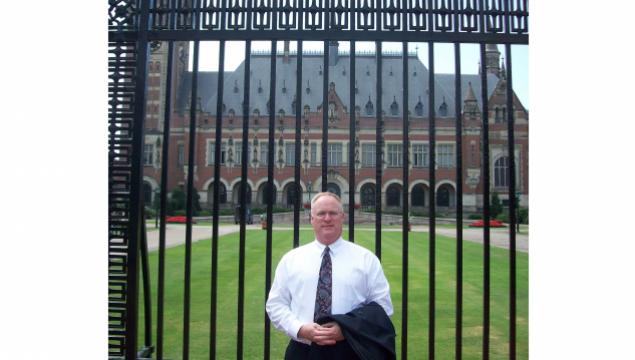An Analysis of Leadership Within the International Criminal Court
Why This Project Is Important
In the 21st century, the global environment will continue to experience an increase in political and economic turmoil, resulting in regional instability, failed states, asymmetric conflict, and global terrorism. This research study is important to US national security. Legal scholars claim that international legal institutions are in need of judicial reform in order to hold perpetrators accountable for war crimes, crimes against humanity, genocide, and other human rights violations.
The United States plays a critical role in establishing the international judicial system. The challenge noted in the Office of the Prosecutor Strategic Plan 2012-2015, is that trial lawyers must "be able to lead without micro-managing, manage multi-disciplinary teams, and integrate different interest while at the same time providing legal guidance" (p.26). However, no theoretical frameworks exist that link leadership principles with international judicial processes. As a result, exploring individual judicial leadership competences will play a critical role in the operational performance, racial judicial equality, and educational training of United States judicial processes.
Project Description
This research project explores the individual leadership competences of international judges, international prosecutors, and international court administrators and their support staff at the International Criminal Court (ICC) located at The Hague, Netherlands.
There are four objectives of this research project:
- What are the leadership competences exhibited by judicial actors within the International Criminal Court?
- What leadership practices shape international judicial actors as organizational leaders within the International Criminal Court?
- How does leadership competencies guide organizational performance of international judicial actors within the International Criminal Court?
- How does multicultural leadership competencies impact international judicial actors as organizational leaders within the International Criminal Court?
The objectives of this study are to not only to identify leadership competencies of current and former president of the court, office of the prosecutor, and registry or court administrator and their support staff but also to generate a body of knowledge that explores judicial actors as leaders within the national and international judicial systems.
Meet the Researcher

Andrew Campbell
Mr. Campbell is Doctorate of Global Leadership candidate from Indiana Tech University, Fort Wayne IN. Mr Campbell holds a Master of Diplomacy in International Conflict Management and Terrorism from Norwich University, Northfield VT. He is widely published in international journals such as "An in-depth analysis of shared governance in a complex environment' (2014), "Conflict resolution: merging victimology and leadership to secure peace" (2013), "In-depth analysis of global leadership challenges" (2013), and "Global economic analysis of China, Russia, and India" (2013) as well as several paper presentations at the European Consortium for Political Research, International Leadership Association, and The Hague. Mr. Campbell works for the US Department of Defense as a Strategy and Integration Planner.
What Your Donation Can Help Us Do:
- Help cover travel costs to the Hague, Netherlands
- Help purchase supplies
- Help cover the cost of data collection from field work
Recent Donors
Some donors may be hidden.

 Gifts to projects listed on SUPERIORIDEAS.ORG are received and processed by Michigan Tech Fund. Michigan Tech Fund is a tax-exempt organization under Section 501(c)(3) of the Internal Revenue Code acting on behalf of Michigan Technological University. It is the policy of Michigan Tech Fund that a portion of the gifts and/or income therefrom may be used to defray the costs of raising and administering the funds.
Gifts to projects listed on SUPERIORIDEAS.ORG are received and processed by Michigan Tech Fund. Michigan Tech Fund is a tax-exempt organization under Section 501(c)(3) of the Internal Revenue Code acting on behalf of Michigan Technological University. It is the policy of Michigan Tech Fund that a portion of the gifts and/or income therefrom may be used to defray the costs of raising and administering the funds.